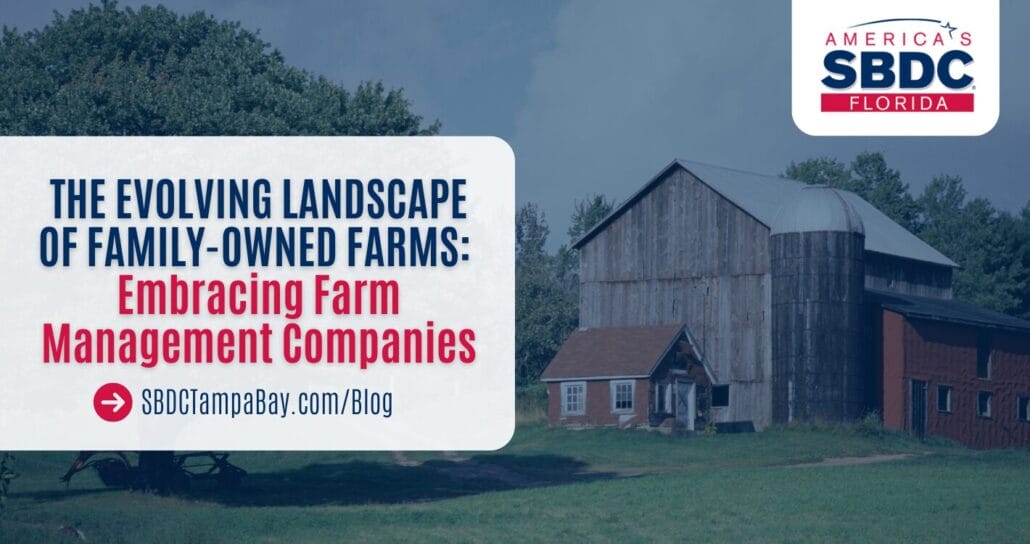The Evolving Landscape of Family-Owned Farms: Embracing Farm Management Companies

by Brad Mix | July 15, 2025
Family-owned farms have long been the backbone of agriculture, embodying tradition, hard work, and a deep connection to the land. However, the modern agricultural environment presents numerous challenges, prompting many family farmers to adapt by partnering with farm management companies. This shift reflects a broader trend in the industry, aiming to balance heritage with innovation.
Challenges Facing Family-Owned Farms
Several factors have contributed to the evolving dynamics of family-owned farms:
- Labor Shortages: Agriculture has been grappling with a diminishing workforce, making it increasingly difficult for family farms to maintain operations. The physically demanding nature of farm work, coupled with rural depopulation, has exacerbated this issue.
- Technological Advancements: The rapid development of agricultural technology requires significant investment and expertise. Many family farms struggle to keep pace with these innovations, which are essential for maintaining competitiveness and efficiency.
- Economic Pressures: Fluctuating commodity prices, increasing input costs, and global market volatility have tightened profit margins, making it challenging for family farms to sustain profitability.
- Regulatory Compliance: Navigating the complex web of environmental and safety regulations demands specialized knowledge and resources, often stretching the capacities of family-run operations.
Role of Farm Management Companies
In response to these challenges, many family-owned farms are collaborating with farm management companies. These firms offer a range of services designed to enhance operational efficiency and profitability:
- Operational Expertise: Farm management companies bring specialized knowledge in modern farming practices, helping to streamline operations and implement best practices.
- Resource Optimization: They assist in optimizing resource use, from input management to labor allocation, ensuring that farms operate at peak efficiency.
- Financial Management: These companies provide financial planning and analysis, helping farms navigate economic uncertainties and plan for sustainable growth.
- Regulatory Navigation: With expertise in compliance, farm management firms ensure that operations adhere to all necessary regulations, mitigating legal risks.
Case Studies of Farm Management Companies
Several companies exemplify the services provided in this sector:
- Farmers National Company: As one of the largest farm management firms in the United States, it manages approximately 5,000 farms, ranches, and specialty operations nationwide. Their comprehensive services include farm management, real estate sales, and appraisal services. Farmers National Company
- UnCommon Farms: This company focuses on helping producers across North America build profitable and sustainable operations, positioning them for multi-generational success. uncommonfarms.com
- Root Agricultural Advisory: Offering tailored farm management services, Root Agricultural Advisory assists both small and large-scale operations in streamlining processes, optimizing resources, and maximizing profits. rootagadvisory.com
Impact on Family-Owned Farms
The collaboration with farm management companies has yielded several benefits for family-owned farms:
- Sustainability: By implementing efficient practices, farms can enhance environmental stewardship, ensuring the long-term health of their land.
- Profitability: Expert management leads to better financial outcomes, helping farms remain viable in a competitive market.
- Legacy Preservation: Professional management allows families to retain ownership while ensuring the farm’s success across generations.
Challenges and Considerations
Despite the advantages, this shift also presents challenges:
- Loss of Autonomy: Engaging external management can lead to a perceived or actual loss of control over farm operations, which may be uncomfortable for families accustomed to hands-on management.
- Cultural Shift: Integrating corporate practices into family traditions requires careful balancing to maintain the farm’s identity and values.
- Cost Implications: Hiring management services entails additional expenses, which must be justified by corresponding increases in efficiency and profitability.
The landscape of family-owned farms is undergoing significant transformation. By partnering with farm management companies, these farms can navigate contemporary challenges while preserving their heritage. This collaboration represents a strategic adaptation, ensuring that family farms continue to thrive in an ever-evolving agricultural sector.





Brad Mix
Consultants, Growth Acceleration Consultants, Manatee, Mix, SarasotaFlorida SBDC at USF
Specialty: Disaster Assistance, SBA Lending, Startup
Brad Mix has more than 20 years of experience in the financial services industry and as a business consultant. Prior to joining the Florida SBDC at USF, Mix provided consulting services to more than 2,500 businesses and assisted business owners in securing more than $100 million in capital and $60 million in government contracts. He has extensive experience with SBA loans, including 504s, Community Advantage loans, and microloans. In addition, he assists business owners in preparing business plans, financial projections, profitability improvement, business acquisitions, business valuations, marketing and capital solutions.